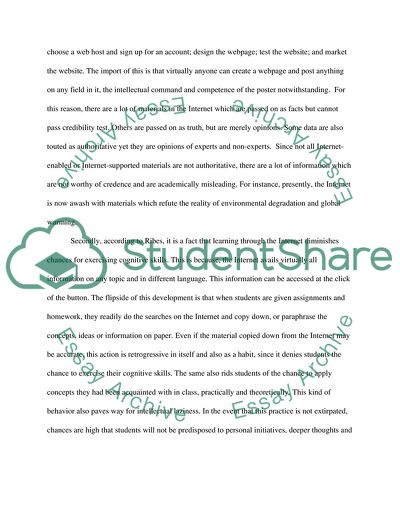Cite this document
(Internet is Not Good for Study Term Paper Example | Topics and Well Written Essays - 1500 words, n.d.)
Internet is Not Good for Study Term Paper Example | Topics and Well Written Essays - 1500 words. https://studentshare.org/education/1820852-internet-is-not-good-for-study
Internet is Not Good for Study Term Paper Example | Topics and Well Written Essays - 1500 words. https://studentshare.org/education/1820852-internet-is-not-good-for-study
(Internet Is Not Good for Study Term Paper Example | Topics and Well Written Essays - 1500 Words)
Internet Is Not Good for Study Term Paper Example | Topics and Well Written Essays - 1500 Words. https://studentshare.org/education/1820852-internet-is-not-good-for-study.
Internet Is Not Good for Study Term Paper Example | Topics and Well Written Essays - 1500 Words. https://studentshare.org/education/1820852-internet-is-not-good-for-study.
“Internet Is Not Good for Study Term Paper Example | Topics and Well Written Essays - 1500 Words”. https://studentshare.org/education/1820852-internet-is-not-good-for-study.


